
OR
Republica Roundtable
Clarion call to strengthen HR management in Nepal
Published On: November 20, 2019 08:49 AM NPT By: Republica | @RepublicaNepal
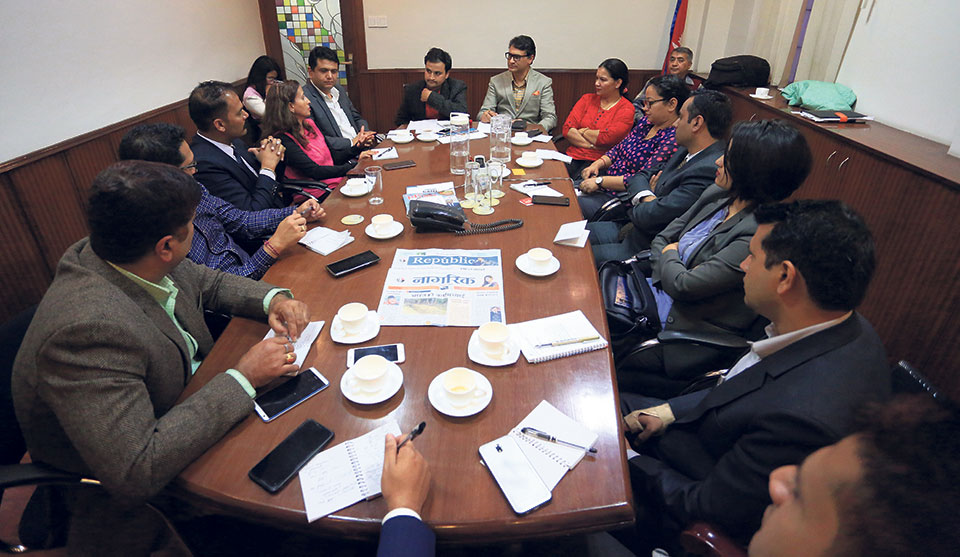
Though human resource (HR) management is a critical component of any organization or firm, many in Nepal still tend to overlook the importance of people management. They still undervalue their human capital. While HR management practices have been evolving in Nepal from traditional to modern form, there is still a long way to go to make the people management a core management practice in many companies. The roles of HR Department, if exists, in any organization is yet to go beyond recruitment, attendance and leave management, and negotiate with employees on pays and perks. However, HR professionals are upbeat with the progress, albeit slow, on the greater recognition of their roles in any organization.
With an objective of strengthening HR profession and practices and promoting significance of HR management in Nepal, Human Resources Society Nepal (HRS Nepal) was formed in 2013. HRS Nepal organized the 8th edition of the National HR Conference in September with a theme “Upskilling and Reskilling HR”.
Republica organized a roundtable with officials of HRS Nepal to understand the latest trend, challenges and scopes of HR management in Nepal. Nearly a dozen HR leaders of HRS Nepal representing various companies and organizations were invited in the roundtable conference. Below are the condensed and edited versions of their views expressed in the roundtable:
Govt not serious about establishing HR Ministry
Mohan Ojha, President
In many countries, including India, there is a separate HR Ministry. After the country embraced federal set up, the government formed a seven-member commission led by Kashi Nath Dahal to look into staffing and employees issues in three tiers of the government. The first recommendation in the report of the commission was to set up the HR Ministry by integrating nearly a dozen ministries. It is not clear why the government has not implemented the recommendation so far. I think that the government has not understood the importance of HR Ministry. We can see how political parties have utilized their cadres in nation building. The government splits ministries without any rationale. The main reason behind the delay in setting up the HR Ministry could be lack of seriousness in the part of the government. We had hoped that the current government with two-thirds majority would take the lead in forming the HR Ministry. The functions of various ministries overlap. We can form a separate HR Ministry by merging them. Under the HR Ministry, we can have various ministers or departments to deal with different themes. The HR Society Nepal has been working toward lobbying for the formation of the HR Ministry.
No alternative to SSF
Bindu Bhattarai, Vice President
There is of course a difference between now and then in terms of how a company or its CEO or management and board perceive the HR. Not only the HR is limited to traditional functions like attendance or leave management of staffers, it is also being taken as a strategic partner or finding a business role within an organization. Still, there is a long a way to go. The government has recently introduced a contribution-based Social Security Fund (SSF) for employees of private and non-governmental sector. The fund is taking a big stride in terms of bringing employers and employees into the social security fold. Since the government executed this system without necessary preparations, it has met some initial hitches. When a new system is first executed, there could be difficulties during the transitional phase. The government is addressing them by making necessary amendments to rules and regulations wherever it is required. There was also a lack of clarity on some schemes introduced under the new social security system. The authorities are trying to clarify them. We must join this scheme and support the government as there is no alternative to this system.
Time to think about impact of automation
Madhu Paudel, Vice President
It is high time the government thought about the impact of technology and automation in employment. In fact, we are already late to discuss and prepare on how to respond to automation and technology which is changing the job market. There are already talks about paperless world. However, our workers have not acquired the skills that are needed in the changed environment. The government has not brought any strategy or program to develop human capital that is needed for the country to compete with other countries in the world. While the failure to supply workers in line with the demands in the market is a matter of utmost importance, we also have a concern on why the skilled manpower is deserting the country. We have been complaining that there is a shortage of skilled human resources in the country. But, skilled workers are also leaving the country in droves. There is a gap between the supply and demand. We have not been able to create a favorable environment to have a good capital owing to various external and internal factors, including pay scale, status of economy and failure to build learning/training centers. Industries and universities should work hand in hand to bridge the skills gap in the market, while the government can help in setting up learning centers.
We are evolving from traditional hiring culture
Binita Kuikel, Member
The mismatch between job applicants and hiring companies exists in Nepal. It has somehow hindered the professionalism factor in the recruitment process. We have definitely stepped up and are evolving from the traditional hiring culture. But people have the mindset that if they apply online or send the job application through Internet, they fear they might hear from the company a little late. But if they already have someone they know working for the company and approach the employer through them, they might get the response sooner. The tendency can be minimized with quick response from the HR management of any company. It can also prevent the applicant from applying for multiple companies at once because of delayed response. Even if the applicants are not shortlisted, HR’s reasoning on what is lacking on the person so that s/he is getting rejected can help the person upgrade. The trend persists because the applicants are not confident enough to approach the company independently. If the companies develop this culture from their sides as well, the trend of applying through someone they know in the company can be subsided.
Skills assessment helps to understand market requirement
Subash Shrestha, Executive Committee Member
There is a need for regular assessment of skills in our market. Generally, the skill assessment should have been carried out by the government. But, the initiative to conduct the assessment carried out by Human Resources Society Nepal on a voluntary basis aims at providing a holistic picture about what kind of skilled human resource is needed in our market. It also gives an analysis on how to bridge the gap. The survey in the assessment has a small sample size compared to the analysis of other countries. It requires a lot of resources, time and investment to carry out the survey in a large scale. However, the assessment that we have carried out could be a starting point. This assessment helps to understand where we are and where we have to reach in the global market.
Need to revise university curriculums
Nilima Shrestha, Treasurer
There is a gap between what our universities teach and what HR requires. There is a need to develop or revise curriculums of our universities in line with the demand of job markets. If we develop our curriculum after study the market demands, we would be able to bridge the gap somehow. The curriculum and syllabus of universities should be changed according to the time and context. Educational institutions should also focus on delivering practical skills along with theories. Students must be familiar with the outside world – what’s happening in the market or how an office runs.
Perception toward HR has changed
Pramod Thakur, Member
We have been organizing National HR Conference annually. The conference is targeted to all the people related to the human resources sector. Through the annual conference organized for the past eight years, we have been able to bring a change on how the HR management used to be thought compared to the traditional approach in the past. The perception from personal management to human resource management has changed among companies over these years. But, we still have to do a lot in this sector. With the help of private sector and government sector, we could develop and make HR better and result-oriented.
Realization of HR’s importance growing
Bhuban Raj Joshi, Member, Advisory Board
There is a significant progress in the field of HR compared to the past. Earlier, it was finance or administration departments that were running the HR department. The HR was limited to recruitment and trivial works like organizing picnic. Now, most of the companies have realized that people management is equally important as finance or administration management in a company. In private sector, the new generation owners, who are educated in prestigious colleges, are running companies and they believe that the people management is very important in their companies. Now there is something lacking within us – HR managers. That’s why we have been organizing various seminars and conferences not only to raise awareness about the importance of HR, but also debate and discuss on how to drive HR beyond recruitment and hiring. There is a big and important scope of HR.
The HR scenario is positive
Binod Pd Mishra, Executive Member
I feel that the government does not have any strategy on the use of manpower that come with new set of skills from abroad. We need to recognize their skills. After studying abroad and gaining some skills, they come to Nepal. But due to lack of equipment and compatibility, such workforce eventually returns to where they feel fit. There needs to be recognition of such skilled manpower so that they feel welcomed when they decide to return back to Nepal. They need to feel valued by the government so that they, deep from their heart, want to come back and work for Nepal. The scenario of human resources is positive as policies, acts, regulations on the issue are getting wider. The government is in positive line and is giving the attention it needs. But as the main executer, it is our role to make the government officials familiar with the issue.
Only HR and IT departments will exist in the future
Damayanti Joshi, Member, Advisory Board
HR of private sector, including banking, is more professional compared to the government sector. The private sector has adopted new global practices since long. The recruitment or promotion opportunities in private sector are performance-based, unlike in the government sector where it is largely based on traditional way like written exams. This is why the HR in private sector is very professional. There are also issues on balancing work and life as banks or private sector organizations tend to be aggressive in their businesses which may not be the case in the government. Those who want to work in a laid-back way or are concerned with status symbol may seek government jobs. In reality, there will be only two departments – HR and IT – in any organization after one decade. Wherever automation is needed, IT department will do it. Wherever personal touch is needed, the HR department will have the role.
Nepal lags other countries in creating a working environment
Chudamani Parajuli, Secretary
Nepalis are leaving for different countries depending on the level of their skills. Semi-skilled and unskilled manpower are settling in some countries, whereas skilled manpower is being developed in others. I thank Nepal lags behind others countries when it comes to creating a working environment for skilled manpower in the country. Pay scale, working environment and lack of opportunities are the main reasons for skilled workforce to leave the country, whereas for unskilled manpower, the probability of securing jobs is very low. Even if they land a job, there are very less learning opportunities. For example, about 80% of laborers that we use to building a house are Indians. We could have developed our own manpower and used them in the market. But we are still using Indian laborers. It is a challenge for Nepal and HR stakeholder to develop already existing human resources and retaining them in Nepal in the days to come. Both the government and HR Society have to do some brainstorming to address these issues. It is the government’s responsibility to develop a curriculum that match the real time needs regarding human resources in the domestic market.
There is room for improvement
Tekraj Sharma, Member Advisory Board
I think workforce that return from foreign land with skills and usage of technology are finding it difficult to adjust in Nepali workplaces. It may be because environment in workplaces here is different from what they are used to in the foreign land. I think there is sufficient room for improvement. The scope for improvement is high in Nepal in comparison to any developed nation. I see the need to update our system. It’s a fact that we have not been able to use the skill set that abroad returnees are equipped with in Nepal.
HR managers should not confine themselves to traditional roles
Roopesh Shrestha, Executive Member
I feel some HR professionals are not being unable to convince the sector’s needs in the long run. It is HR professionals’ role to trace where our market is headed and our sources of future workforce, and it is up to us on how we are addressing the issue. Just talking about having a global mindset is not enough, we need to adapt to global practices which we clearly lack. We need to create awareness to bridge the gap by communicating with colleges and universities. We have never approached educational institutions with our HR needs. We just expected things to fall into their respective places without making any effort. A research shows that we want our workforce to venture in foreign land, but eventually return back to Nepal and work here. It is a good thing for development of country’s economy. We need to stay close to the industries and should not confine ourselves into our traditional roles of just recruiting, hiring and firing. HR is a manager of human resources. I feel that we need to have our own approach accordingly.
You May Like This
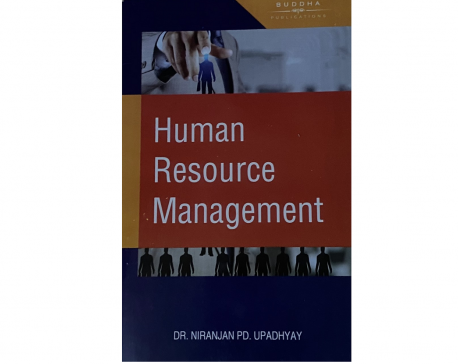
A must-read book for human resource management junkies
I was fascinated to read about human resource management in Bhutan and the hydropower project examples provided there. Information on... Read More...

Hotels in Nepal are already of international standard
Working tirelessly with the notion of recognizing coworkers for their work, Upaul Majumdar, general manager at Soaltee Crowne Plaza, has... Read More...
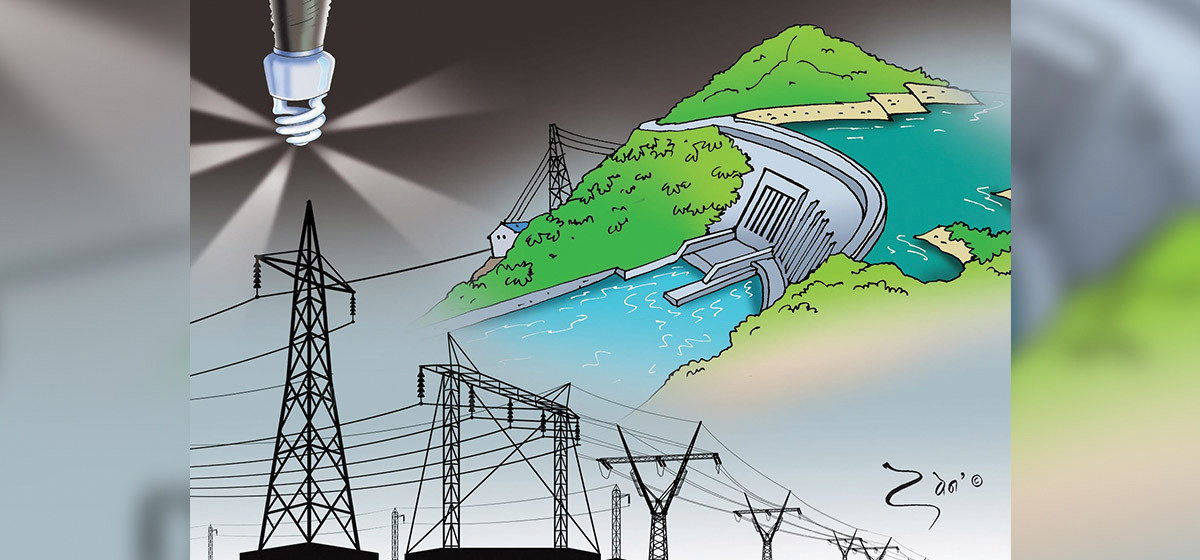
-1200x560-wm_20240503161056.jpg)
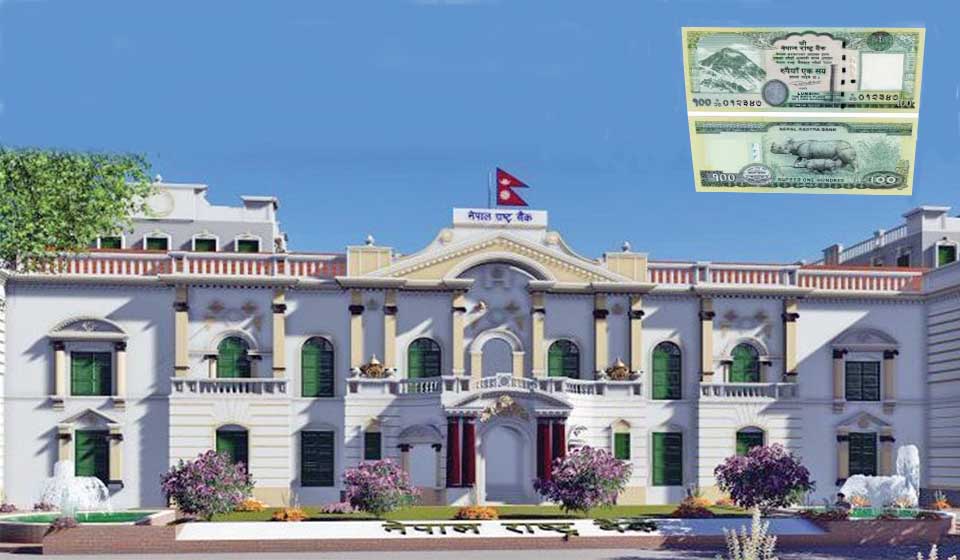
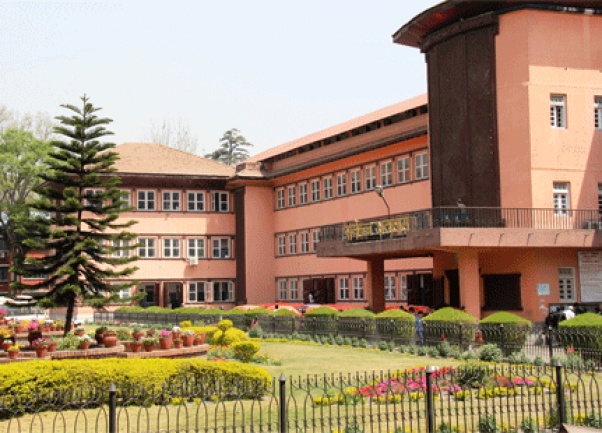
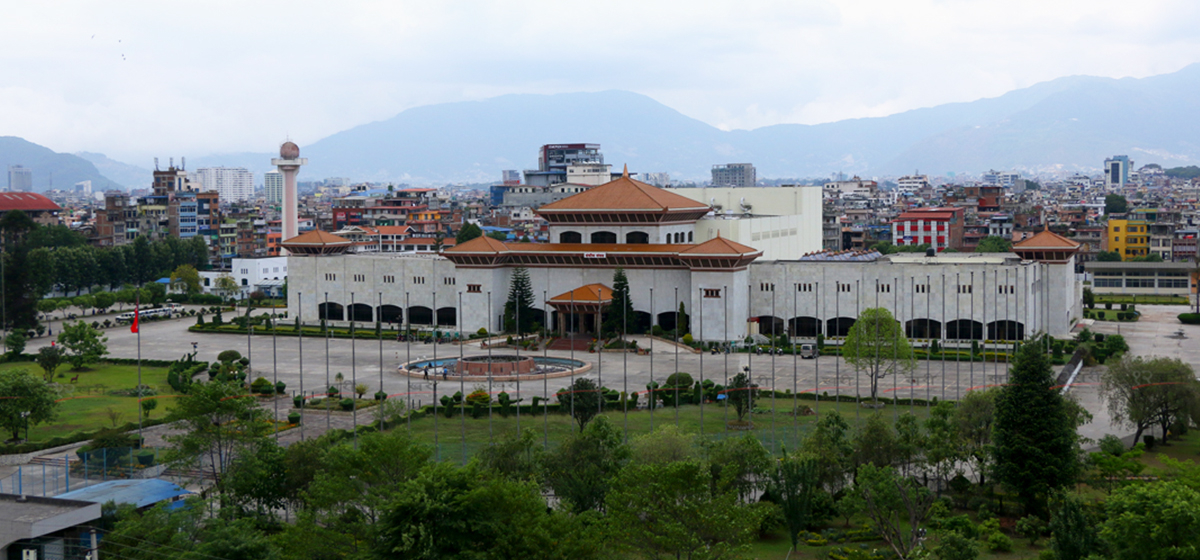
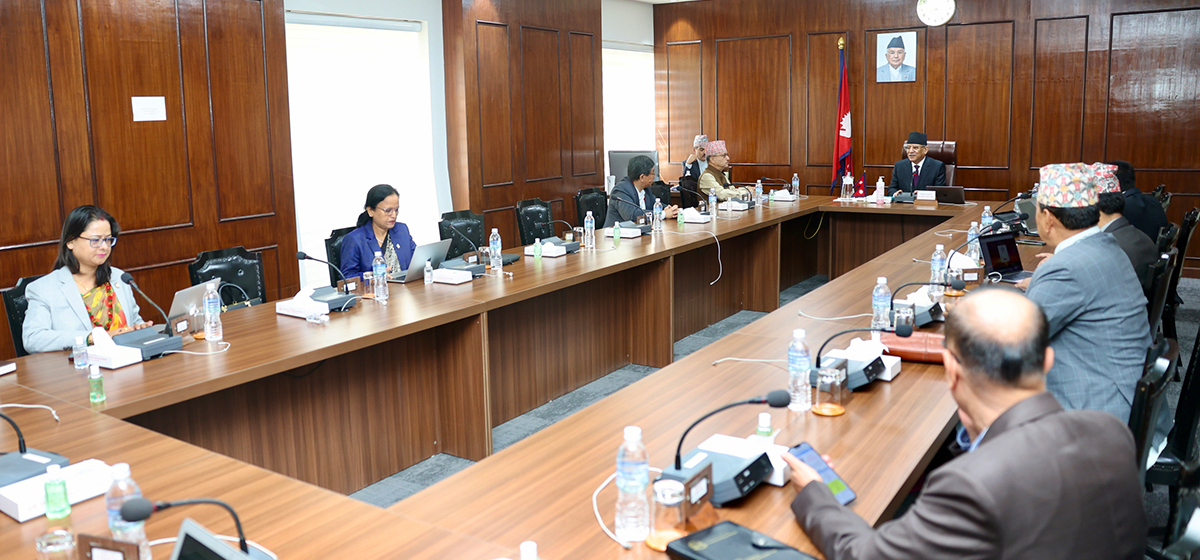

-1200x560-wm_20240503161056.jpg)
Just In
- Over two dozens bills stalled in previous parliamentary session yet to be registered for deliberation
- Japanese Foreign Minister Yoko Kamikawa to visit Nepal on Sunday
- Cabinet transfers six secretaries
- KMC’s 35-day ultimatum to RB Complex and People's Plaza to settle outstanding taxes
- Govt reduces fiscal equalization grant by Rs 317.4 million in Makwanpur
- Govt approves proposal to feature new Nepal map that includes Kalapani, Lipulekh and Limpiyadhura on 100 rupee note
- Madhesh: LSP’s provincial assembly member Abhiram Sharma suspended
- Flight operations again halted at PRIA on Friday










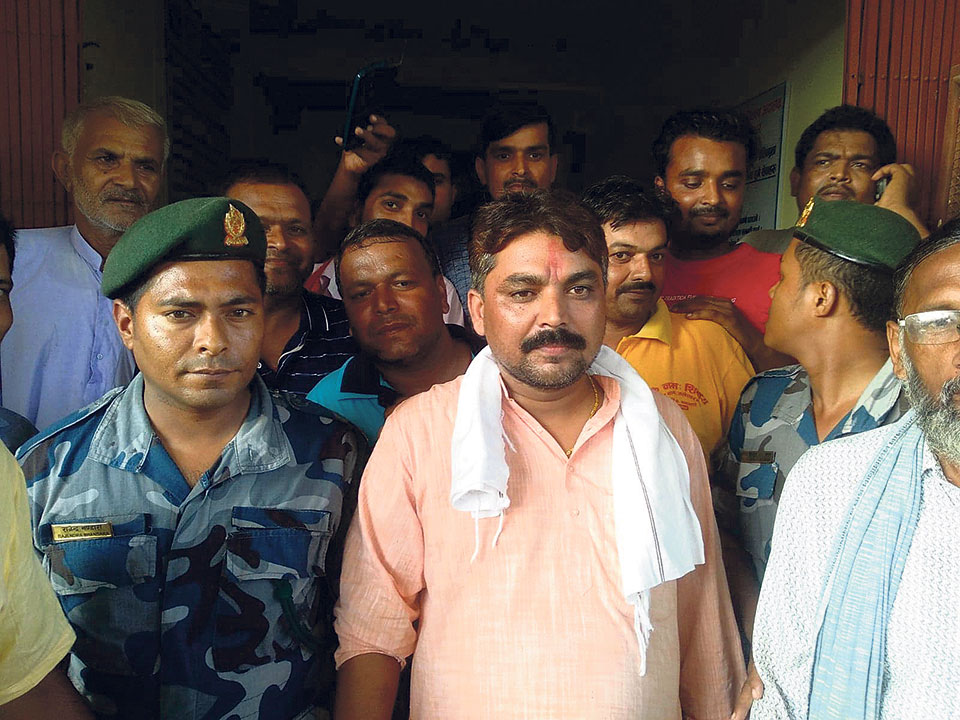
Leave A Comment